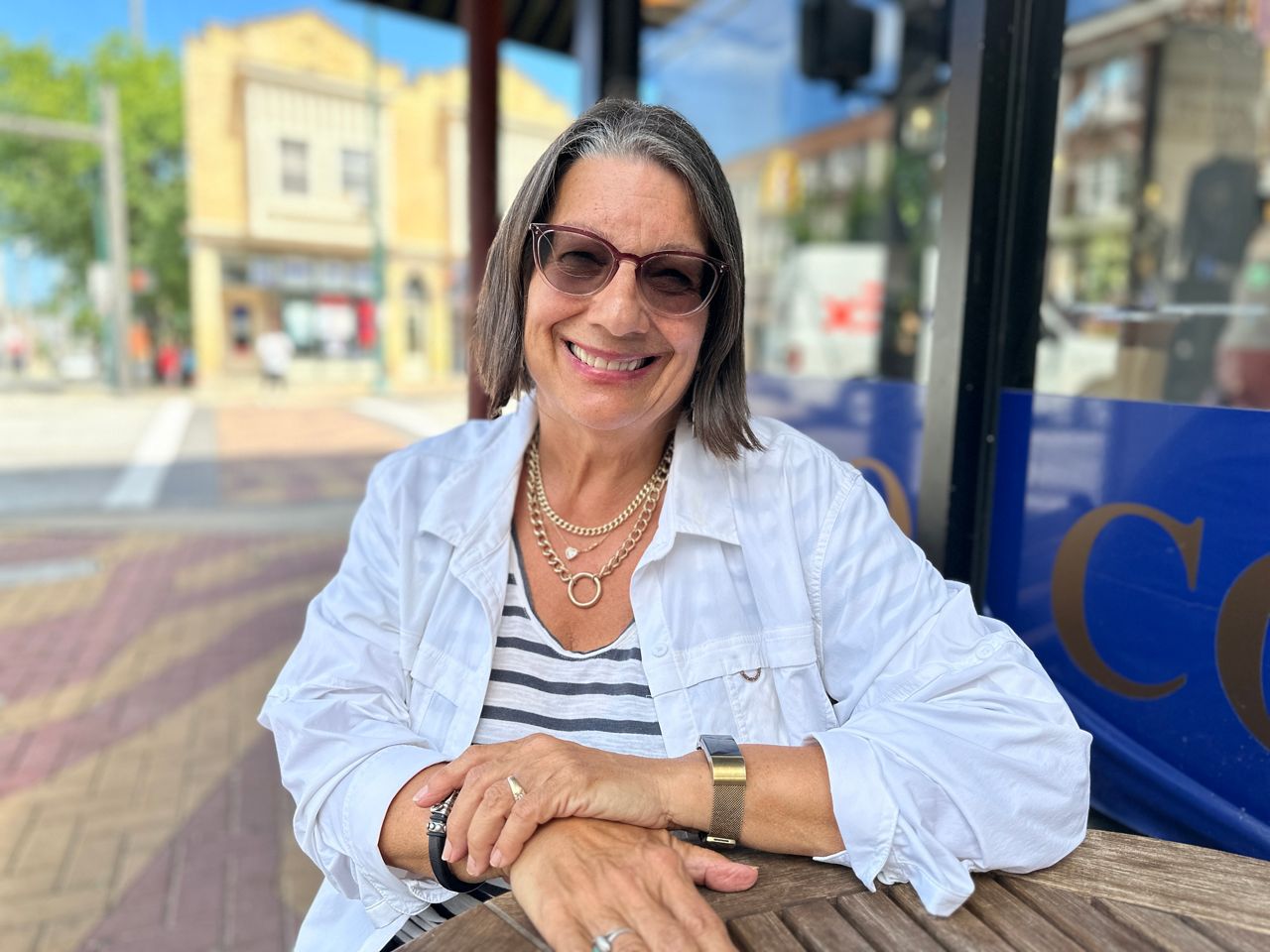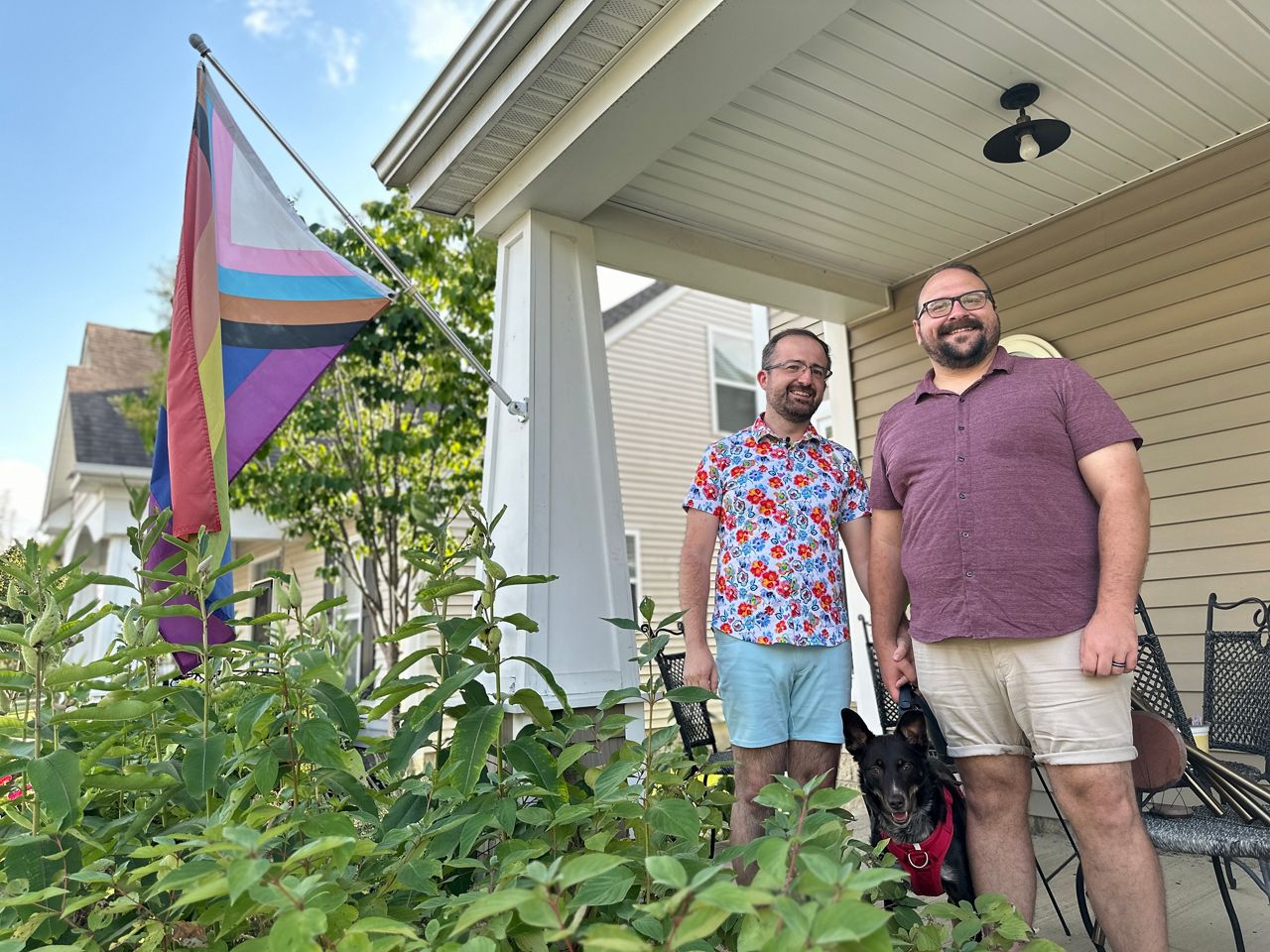OHIO — Communities across the nation are becoming more diverse, but statistics show diversity in leadership is lagging.
The United States is a "representative democracy," but according to a Gallup survey, nearly 8% of U.S. adults self-identify as lesbian, gay, bisexual, transgender or something other than heterosexual. Yet, LGBTQ+ people represent only .25% of the total elected officials nationwide.
“It's very important that we recognize that these halls of power aren't as equitable as they could be,” said Orie Givens, the vice president of communications at The LGBTQ+ Victory Fund & LGTBQ+ Victory Institute. “We have to elect more than 35,000 nationwide to have equitable representation for LGBTQ people. So we have a long way to go.”
The LGBTQ+ Victory Fund is a political action committee dedicated to electing LGBTQ+ leaders to public office.
“We believe that just like every other population within our country, it's important for us to be included in the decision-making processes, whether it's at the local level in your city council or at the state level in your legislature or in a statewide office,” Givens said “Having LGBTQ people is just another layer of perspective and voice that contributes to the fabric of our country. We need a diversity of voices, a diversity of opinions and viewpoints to be able to have inclusive laws and policy.”
Victory Institute statistics show there are at least 1,303 out elected LGBTQ+ officeholders nationwide as of May 2024. Ohio has several numbers of local officials across the state at different levels, from auditors to sheriffs and more. Ohio’s three major cities — Cleveland, Cincinnati and Columbus — all have at least one LGBTQ+ city council person. The state has at least 47 out LGBTQ+ elected officials, which is an increase of 12 people from 2023. State Senator Nickie Antonio is one of them. She was the first and currently only out LGBTQ+ state legislator in Ohio.

“I feel good about the fact that I was the very first person at the state level in Ohio, the first person ever to run and win in the legislature, but I don't want to be the last,” Sen. Antonio said.
According to the gender policy report, Black, Indigenous, and other people of color are both more trusting of their government and more likely to contact their representative when they share the same race/ethnicity. The same goes for sexuality and gender identity. Antonio thinks elected officials should reflect the communities they serve and there are LGBTQ+ people in every community.
“We do need a diverse group of voices making the decisions for a diverse population,” Antonio said. “That's what makes us stronger. It's also what democracy requires of us. Democracy says give me all the different voices and representation and then don't work out here on the edges of the extremes, work to the middle, because that's where our strength lies. And that's what makes good public policy.”
There’s a saying that if you’re not at the table, you’re often on the menu. Antonio said in many states nationwide, the rights of LGBTQ+ people have been on the menu. For example, in Ohio, House Bill 68 became law after the House and the Senate voted earlier this year to override Ohio Gov. Mike DeWine's veto. The law prevents transgender youth from starting hormone therapy and puberty blockers, and stops transgender athletes from playing middle and high school sports.
Antonio thinks political targeting is one reason why more LGBTQ+ people have been running for office. Another reason she thinks is because voters are more accepting of LGBTQ+ people now more than ever before.
“If rules and laws are going to be made about us, we need to be at the table,” Sen. Antonio said. “We need to be serving in the halls of power so our voices are heard, and that we have a say in what kinds of legislation does and does not pass.”
Currently in Ohio, there are three known LGBTQ+ people running for offices this year, but only one for a statewide office.

“It makes me finally feel represented,” said David Donofrio, candidate for State Board of Education District 6. “When I see someone like me, for example, on our local city council, it makes me feel welcome in the city. It makes me feel like there's someone who has gone through a lot of the same things that I've gone through and that I'm being fought for, and that's why representation matters.”
If Donofrio gets elected this November, he will be the first out gay person on The Ohio State Board of Education.
“If we all just stay closeted and we say behind the scenes, then people are not going to know that their neighbor down the street, that their friend, that their family member is a member of this community.” Donofrio said. “And often it takes a very personal connection like that to change someone's mind.”
To these people, diversity and representation matter.
“Having that visibility in those spaces just helps to help people see people as people, no matter their sexual orientation or gender identity,” Givens said.
Because just like the first Hispanic Supreme Court Justice, Sonya Sotomayor said, “you can’t be what you can’t see.”
“It really makes a difference for young people. When young people see us in these roles, what we're saying is, you matter, you have a voice, you have somebody representing your authentic self, and you have a future,” Antonio said. “For people who are thinking about it and want to do it, you have to be fearless. You have to just go for it and don't look back.”
For more information on the LGBTQ+ Victory Fund, click here.
Correction: A previous version of this article mistitled Orie Givens. This has been corrected. (Sept. 13, 2024.)



